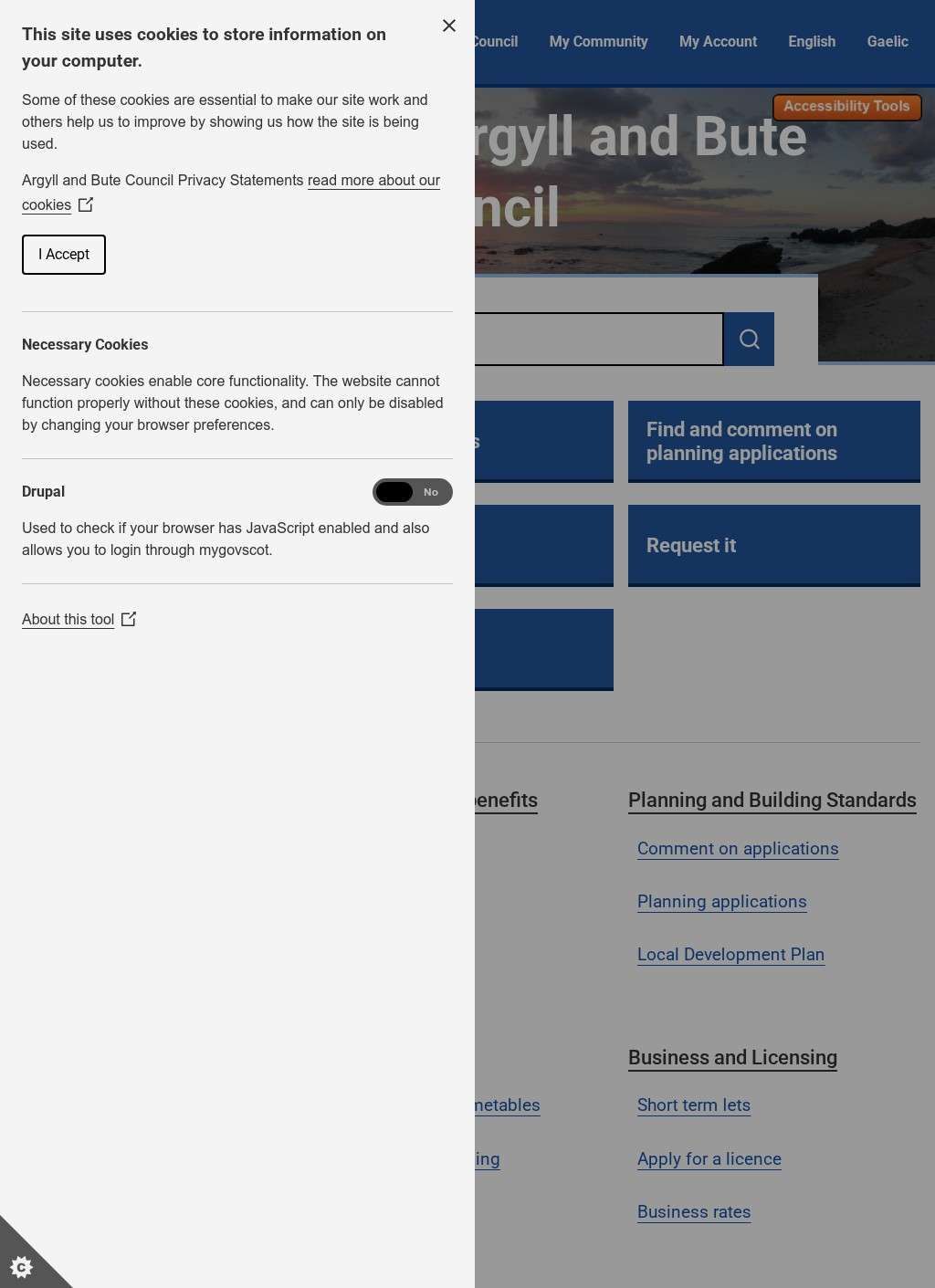Argyll and Bute Council stands as the primary local government authority serving one of Scotland's most geographically diverse and challenging administrative regions. This award-winning council manages services across Scotland's second largest mainland council area, covering approximately 90,000 residents spread across urban centers, remote rural communities, and 23 inhabited islands. The council's website serves as the central digital hub for residents, businesses, and visitors seeking access to municipal services, planning applications, community programs, and local governance information throughout this spectacular but logistically complex region of western Scotland.
The council's administrative headquarters at Kilmory Castle in Lochgilphead reflects the organization's unique position managing services across such diverse communities. From the bustling tourist centers of Oban and Dunoon to remote island communities accessible only by ferry, the council adapts its service delivery methods to meet the needs of scattered populations. The website demonstrates this flexibility through online service portals, digital payment systems, and information resources that bridge geographical barriers while maintaining consistent service standards across the entire region.
Housing services represent a particularly important element of the council's work, recently earning recognition through winning the 2025 Innovation Award at the Empty Homes Network Awards. The platform provides detailed information about social housing applications, homelessness prevention services, and housing repair programs. Given the area's unique housing challenges, including seasonal tourism pressures and remote island accessibility issues, the council's housing team works creatively to address local needs while supporting community sustainability across diverse geographic locations.
Education services receive substantial coverage through the website, reflecting the council's responsibility for schools across mainland communities and island locations. The platform hosts information about school enrollment, transport arrangements, and educational support services that must overcome significant geographical challenges. Recent achievements include Oban High School's recognition as Eco-Committee of the Year by Keep Scotland Beautiful, demonstrating the council's commitment to environmental education and marine conservation efforts that reflect the area's coastal character.
Planning and development services feature prominently given the area's economic dependence on tourism, agriculture, and marine industries. The website provides access to planning applications, development plan policies, and conservation area guidance that balance economic development with environmental protection. The council's approach to planning reflects the unique challenges of managing development pressure in scenic areas while supporting sustainable economic growth across remote and island communities that depend on tourism revenue.
Economic development initiatives receive detailed coverage through information about business support services, tourism promotion, and infrastructure investment programs. The council recognizes its role in supporting local economies that face particular challenges related to geographic isolation, seasonal employment patterns, and transport connectivity issues. The website showcases initiatives supporting aquaculture, renewable energy projects, and creative industries that build on the area's natural assets while providing year-round employment opportunities.
Transport and connectivity issues receive special attention given their critical importance to island and remote communities. The website provides information about ferry services, road maintenance programs, and public transport connections that literally connect communities to essential services and economic opportunities. The council works closely with transport operators to ensure reliable connections between mainland and island communities, recognizing that effective transport links are essential for community sustainability.
Environmental services reflect the area's outstanding natural heritage and its importance to both residents and the tourism economy. The website details recycling programs, coastal protection initiatives, and climate change adaptation measures that protect the area's environmental assets. The council's environmental work includes marine conservation efforts, renewable energy development, and biodiversity protection programs that support both conservation goals and sustainable economic development.
Community engagement features heavily throughout the platform, with resources about community grants, volunteering opportunities, and public consultation processes. The council recognizes that effective governance across such a large and diverse area requires strong community partnerships and local involvement in decision-making. The website supports these partnerships through information about community councils, voluntary sector support, and public participation opportunities in policy development.
Digital transformation initiatives help overcome geographical barriers through online service delivery options that reduce the need for travel to council offices. The platform includes online forms for various service requests, digital payment systems, and virtual consultation opportunities that make council services more accessible to residents in remote locations. These digital services prove particularly valuable for island residents who might otherwise face significant travel costs and time commitments to access council services.
Contact information recognizes the area's diverse communication needs, with telephone numbers, email addresses, and office locations clearly organized by service type and geographical area. The website acknowledges that while digital services improve accessibility, some residents still prefer traditional communication methods, particularly in more remote communities where internet connectivity might be limited or unreliable.
